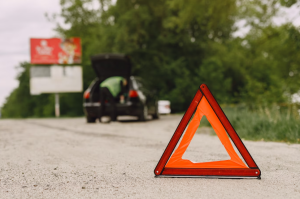
Autonomy Digital 2021, the international show dedicated to sustainable mobility, is now over. Mobility professionals met virtually to think about the future of mobility and share the growing policies and good practices. Citizens and mobility, green energy, shared mobility… transport digitalization has really begun.
Adina Vălean, EU Commissioner for Transport at European Commission, and the EU strategy
Transports are essential to society. This was how Adina Vălean launched Autonomy Digital 2021. Regarding the mobility digitalization, she highlighted the necessity to be more ambitious and to adopt a strong strategy. According to the Romanian politician, the pandemic has actually changed travel behaviors and encouraged the use of electric cars and e-bikes on which it is necessary to focus on. Transport digitalization is speeding up and travelers tend to use more and more shared mobility solutions. Mobility is one of the EU priorities for the next ten years with the ambition to provide reliable, automated, flexible, and safe services. The environment is at the heart of the strategy as well in order to increase sustainable transports. And there is plethora of solutions to decongest cities and reduce traffic jams responsible for climate change. The Commissioner reminds that mobility is everyone’s matter and must be accessible to anyone, regardless the local strategy.
Leuven bets on citizens and mobility
Leuven, in East Belgium, is the well known European capital of innovation where the community seems to have found the winning recipe by involving citizens in its mobility politics. According to the Alderman mobility David Dessers, citizens are the key for such successful change. The Leuven 2030 society has been created to make people decide on the future of the city.
They are often asked in order to define the modes of transports they really need. For Leuven, involving citizens in the mobility evolution is the best way to make them accept the city changes in the following years. Leuven aims to double the number of bike user as well. Actually, the number has already increased by 44% between 2016 and 2019 while the car use has decreased. Moreover, local authorities are pursuing both mobility and climate policies together in order to reduce the consumption of CO2. The Belgian city bets also on a deep changing in behaviors through a larger pedestrian zone.
The Milan electrical challenge
Milan has a large transport network including metro, bus, trams, and trolley lines. Faced with the environmental challenge, the Italian city has decided to generalize electric shared vehicles. That is why 70% of the vehicles is now powered by green energy produced by photovoltaic panels in the city town. Milan plans to deploy full electric solutions such as 1,200 electric bus, renew bus depots and provide charging infrastructures.

EcoVadis rewards PARIFEX for its CSR commitment
PARIFEX is proud to have been awarded its first EcoVadis medal, in recognition of the company’s initiatives in the field of CSR.

PARIFEX exhibits at the French Mayor’s Fair
PARIFEX takes part in the French Mayor’s Fair in the Paris – Porte de Versailles convention center from 18 to 20 November 2025.

Road traffic officers: the guardian angels of the highway
Road traffic officers on motorways play a crucial role in the safety of all users and most of the time work in dangerous conditions.



